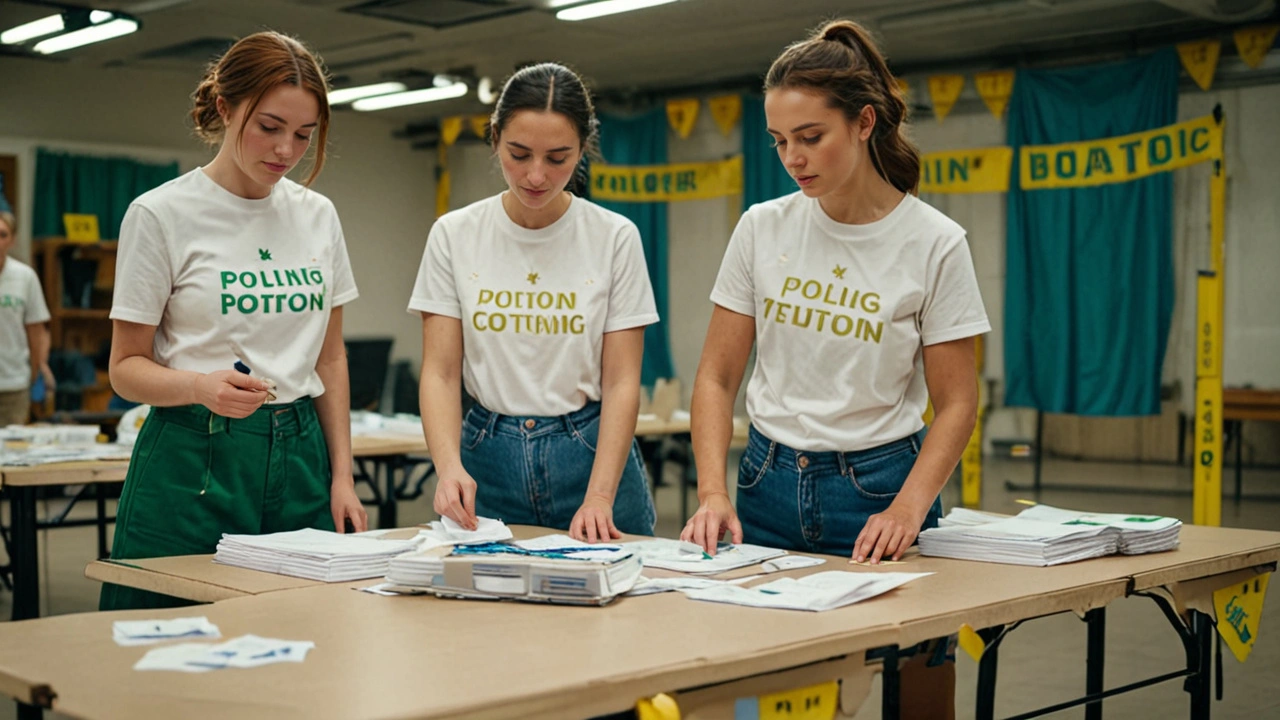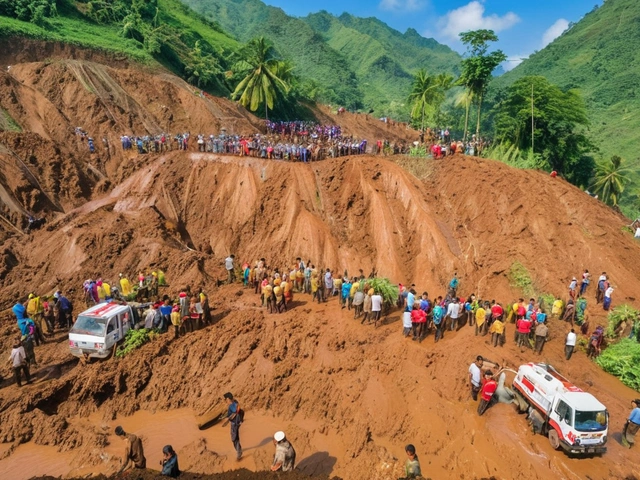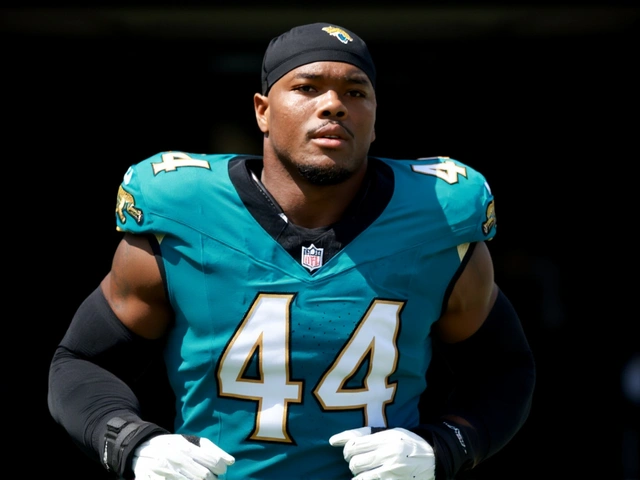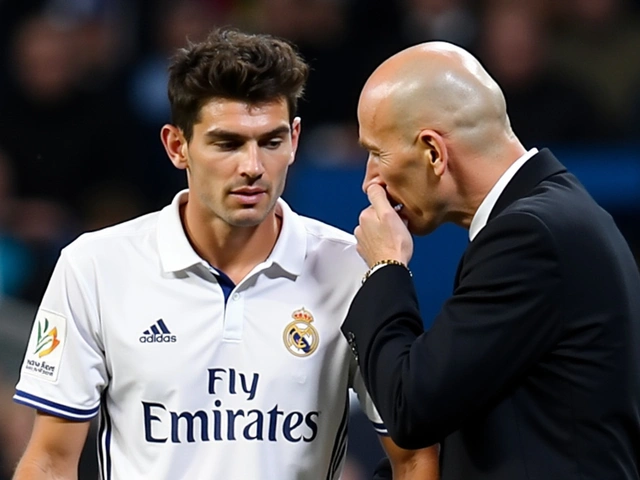
Rwanda's Kagame Seeks Fourth Term Amid Contentious Elections
In a significant political event, Rwandans headed to the polls to participate in the presidential and parliamentary elections, marking another pivotal moment for the nation. President Paul Kagame, a name synonymous with Rwanda’s leadership for nearly three decades, is vying for a fourth term. With polling stations opening at 7 am local time, the anticipation was palpable as over nine million Rwandans were registered to exercise their democratic right.
The Candidates and the Campaign
At the forefront of this election is President Paul Kagame, a key figure in Rwanda’s modern political landscape. At 66 years of age, Kagame has solidified his stance as a prominent leader, guiding the nation through significant periods, including the aftermath of the harrowing 1994 genocide. However, his tenure has not been without criticism. While he boasts of economic development and infrastructure progress, accusations of autocratic rule and suppression of dissent loom large over his administration. His bid for a fourth term is positioned against two opponents – Frank Habineza, leader of the Democratic Green Party, and independent candidate Philippe Mpayimana. Both challengers bring unique perspectives and intentions to the table, yet the shadow of previous elections and Kagame’s dominant presence make their task formidable.
The campaign dynamics have been stark. Frank Habineza’s Democratic Green Party, which emphasizes environmental and social reforms, represents a significant segment of the opposition narrative. Meanwhile, Philippe Mpayimana, running as an independent, seeks to bring a more grassroots-oriented perspective to the fore. Nevertheless, the election environment has been marked by notable absences. Prominent opposition figures such as Bernard Ntaganda and Victoire Ingabire were disqualified from the race, primarily due to past convictions, leading to accusations of unfair restrictions imposed on the opposition.
Challenges to Fair Democratic Process
One of the pressing concerns during this electoral season has been the criticism from rights organizations, notably Amnesty International, regarding the stringent limitations on opposition activities. The disqualification of leading opposition candidates under dubious circumstances has fueled the narrative of a controlled and uneven political playing field. Bernard Ntaganda, a well-known critic of Kagame, and Victoire Ingabire, a significant opposition voice, saw their political ambitions curtailed due to their criminal records. The extent to which these actions have impacted the perceived legitimacy of the elections cannot be understated.
Adding to the complexity, Diane Rwigara, another high-profile critic of Kagame, was barred from running due to alleged irregularities with her paperwork. This move was seen by many as another strategic maneuver to diminish opposition and tighten Kagame’s grip on the political scene. Such events have led to widespread discussions on the integrity of Rwanda’s democratic processes and the rights of citizens to freely choose their leaders without interference.
Table of Election Facts:
| Category | Detail |
|---|---|
| Total Registered Voters | 9 million |
| Poll Opening Time | 7:00 AM local time |
| Parliamentary Seats | 80 |
| Candidates for Presidency | 3 |
| High-Profile Disqualified Candidates | 3 |
Economic Growth and Governance
Kagame’s administration, despite its controversies, is often hailed for its role in rejuvenating Rwanda’s economy and infrastructure. The country, once synonymous with the devastation of genocide, has transformed over the years into a beacon of economic resilience and growth in the African continent. Significant investments in technology, healthcare, and education have driven this growth, with Kigali, Rwanda’s capital, often cited as a model for urban development and innovation.
Under Kagame’s leadership, Rwanda has achieved notable milestones, including high GDP growth rates and improvements in health and education indices. However, this economic success is frequently juxtaposed with the criticisms of Kagame’s governance style. The allegations of suppressed media freedom, lack of opposition space, and stringent control over political dissent form a complex tapestry of Kagame’s leadership narrative.
The duality of Kagame’s rule – as a savior who helped Rwanda rise from its ashes and as an autocrat controlling the political strings – creates a polarized perspective among both Rwandans and international observers. The juxtaposition of economic progress with political suppression underlines the paradox that defines much of Kagame’s long-standing rule.
Parliamentary Elections
Simultaneously, the parliamentary elections are drawing considerable attention. With over 500 candidates vying for the 80 seats in Rwanda’s Parliament, the stakes are high. These elections are seen not only as a measure of democratic engagement but also as an indicator of Rwanda’s political landscape and its future trajectory. Parliamentary candidates, coming from varied backgrounds and representing a spectrum of political beliefs, contribute to the rich tapestry of Rwandan politics.
The parliamentary election serves as a litmus test for the nation’s democracy, providing an opportunity for citizens to influence legislation and governance. The outcome is expected to shape Rwanda’s policy directions and legislative priorities in the coming years, marking an essential chapter in the country's political evolution.
The electoral process, however, is under the watchful eye of both domestic and international observers. Their assessments and reports will play a crucial role in determining the credibility and transparency of the elections. The political climate, the handling of opposition, and the administrative conduct during the elections are key factors that will influence the final verdict on Rwanda’s democratic credentials.
Conclusion
As Rwanda embarks on this critical electoral exercise, the world watches closely. President Paul Kagame, a towering figure in the nation’s history, seeks to extend his rule amid a mixed backdrop of economic achievements and political criticisms. The electoral process, marked by significant challenges and opposition hurdles, brings forth questions on the true state of democracy in Rwanda. The outcomes of both the presidential and parliamentary elections will set the stage for Rwanda’s future, influencing its political, economic, and social spheres for years to come. The resilience and aspirations of the Rwandan people remain at the heart of this crucial moment in their nation’s journey.
July 19, 2024 AT 08:28
You know, it's fascinating how we reduce complex political ecosystems to binary narratives - hero or tyrant. Rwanda's trajectory is neither pure redemption nor pure oppression. It's a nation that chose stability over chaos after unimaginable trauma, and now, decades later, that same stability feels like a cage. The economic miracles are real - Kigali’s skyline is proof - but democracy isn't just about clean streets and efficient trash collection. It's about the right to dissent without fear. And when your main opposition is disqualified on technicalities, you're not building a democracy - you're curating a performance.
July 19, 2024 AT 15:11
I mean... i get why people are upset but like... if you look at the stats, crime is down, schools are better, and the city is spotless 😍 maybe the tradeoff is worth it? 🤔 #RwandaRising
July 20, 2024 AT 00:28
Stability matters! Progress is real! Let’s celebrate the wins!
July 21, 2024 AT 10:59
I’ve read so many articles like this and I just... feel sad. Not angry. Sad. Like, these people deserve better than a rigged game. But also, what can we even do? 🫂
July 22, 2024 AT 02:59
There’s a profound tension here between the moral imperative of political pluralism and the pragmatic reality of post-genocide reconstruction. One cannot dismiss the peace Rwanda achieved - but neither can one ignore the cost of that peace. The question isn’t whether Kagame is effective - he is. The question is whether effectiveness without legitimacy can sustain a society long-term.
July 23, 2024 AT 17:24
Honestly, I don't know what to think. On one hand, Rwanda is a miracle story. On the other, the elections feel like a scripted play. Maybe it's not black and white - maybe it's just complicated.
July 25, 2024 AT 03:03
They got the roads right but forgot the people
July 26, 2024 AT 10:29
The institutional architecture of Rwanda’s governance reflects a post-conflict developmental state model - highly centralized, technocratic, and performance-driven. While liberal democratic norms are under stress, the outcomes in human development metrics are statistically significant. The trade-off between liberty and order is a classic political economy dilemma - and Rwanda is a live case study in prioritizing outcomes over process.
July 26, 2024 AT 13:25
Oh please. The West loves to pretend they care about democracy. They supported Mobutu, they backed the Saudis, they funded Pinochet. Now they cry foul because a black African leader runs a tight ship? Wake up. This is just racism dressed up as human rights.
July 27, 2024 AT 04:13
Wait so if you have a criminal record you can't run? That seems fair? Like if someone tried to run for office after being convicted of inciting violence... isn't that kinda reasonable? 😅
July 28, 2024 AT 20:36
Everyone deserves a voice - even if it’s uncomfortable. Let’s not confuse order with justice.
July 29, 2024 AT 08:40
I’ve been to Kigali. It’s cleaner than my hometown. But I also met a guy who got arrested for posting a meme about the president. So... yeah. It’s complicated.
July 30, 2024 AT 00:10
This is all a Western media psyop. Kagame is saving Africa from colonial nostalgia. The disqualifications? They were terrorists. The opposition? Paid puppets. The elections? A referendum on sovereignty. The real story is how Rwanda outmaneuvered the IMF, the UN, and the NGOs trying to control it. They didn’t just rebuild - they reclaimed.
July 31, 2024 AT 14:19
I keep thinking about what it means to lead a nation after genocide. The weight of that history isn’t something you can measure in GDP or voter turnout. Maybe Kagame’s grip is brutal, but is it any more brutal than the alternative? And who gets to decide what ‘democracy’ looks like when the last generation lived through hell? I don’t have answers - only questions.






July 18, 2024 AT 08:42
So Kagame wins again, and the world shrugs. We cheer the GDP growth but ignore the silenced voices. It's like admiring a perfectly cleaned prison cell. 🤷♀️